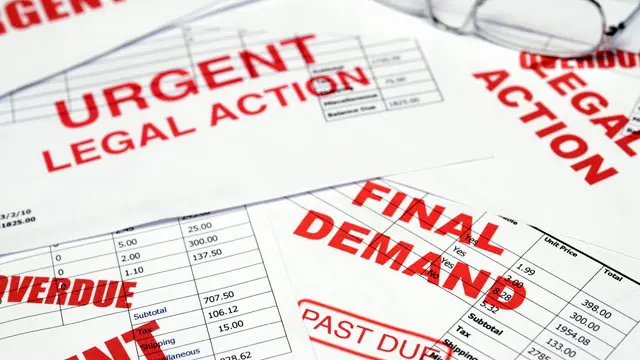A Bill passed by Congress in December of 2015 requires the IRS to use collection agencies to collect delinquent taxes. The IRS intends to begin using the collection agencies sometime in the beginning of 2017. As a tax payer, there are some things that you should know about the new law in order to protect yourself from fraud and unfair practices (additionally, learn how QuickBooks can help detect and prevent fraud). The following are some questions and answers that will help you better understand the IRS’s new collection tactic:
What accounts will the IRS assign to collection agencies?
The IRS will only assign accounts to collection agencies if the IRS is not currently taking collection against them. The IRS will use several factors such as the age of the delinquent account to determine if it will be assigned to a collection agency.
How will I know that the collection agency is legitimate?
This is a very relevant concern for taxpayers, especially with the threat of identity theft. The IRS has done a few things to ensure that you know the collection agency is actually acting on its behalf. Firstly, the IRS will send you a notice by mail if they intend to assign your account to a collection agency. Secondly, the collection agency will send you a notice by mail to confirm that they are in fact assigned to your case. Please note (this is extremely important) that any payment made for tax liabilities should only be made to the US Treasury. No collection agency has the authority to directly collect money from you. If anyone has asked you to pay them directly for a tax liability, they are fraudulently imitating an IRS approved collection agency. Only ever make payments to the IRS.
The collection agencies can also direct you to make payments through the IRS website. Electronic payment options are listed on the IRS website at IRS.gov/payments. Do not make any payments to the IRS that are not either made payable to the US Treasury or through the IRS website. Scammers often ask for payment through prepaid debit cards, but this is not an accepted form of payment by the IRS.
The following are the only approved collection agencies by the IRS. Any other collection agency does not have the authority to collect taxes on behalf of the IRS:
- Conserve, Fairport, NY
- Pioneer, Horseheads, NY
- Performant, Livermore, CA
- CBE Group, Cedar Falls, IA
The collection agencies that the IRS uses must adhere to the Fair Debt Collection Practices Act. This means that the agencies cannot mislead or harass a taxpayer into paying off the debt. A few specifics from the Act that are helpful to know are:
- Agencies cannot call before 8am or after 9pm local time of the individual who owes the debt
- If the individual hires a lawyer, the agency must communicate directly with the lawyer
- The agency may not harass the individual by calling repeatedly, threatening, or using profane language
- The agency may not mislead the individual as to the amount owed, the penalties involved, or any other details of the debt owed
Please refer to the links below for more information on the IRS’s use of collection agencies:
https://www.irs.gov/businesses/small-businesses-self-employed/private-debt-collection
https://www.ftc.gov/enforcement/rules/rulemaking-regulatory-reform-proceedings/fair-debt-collection-practices-act-text

